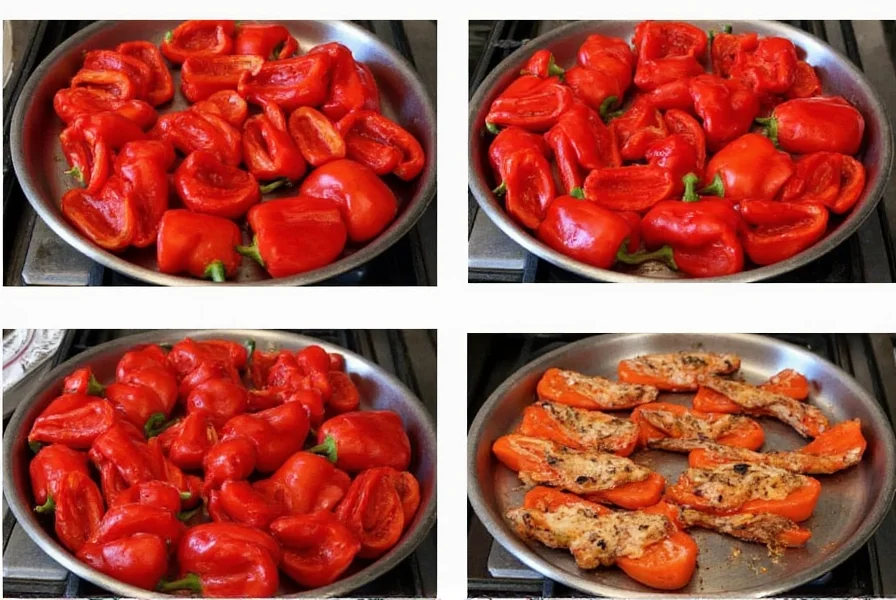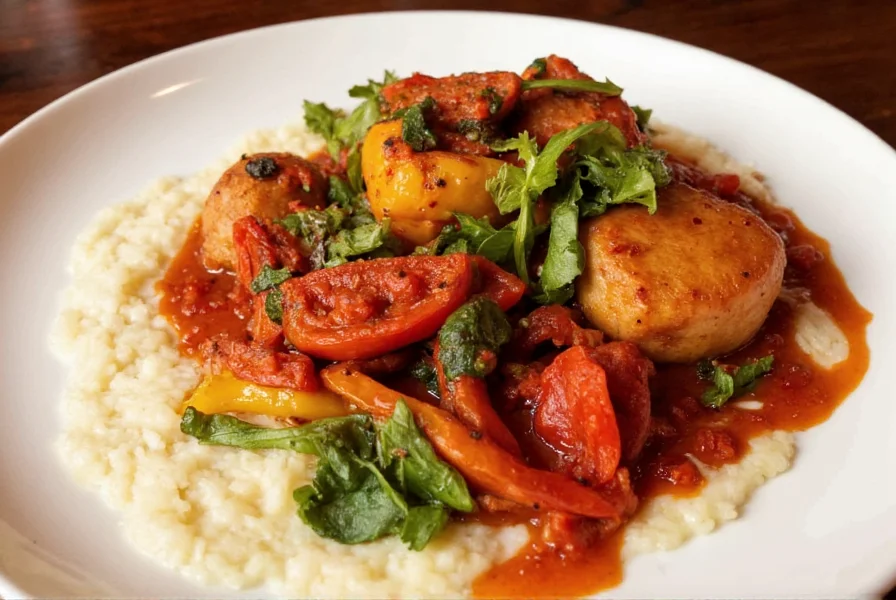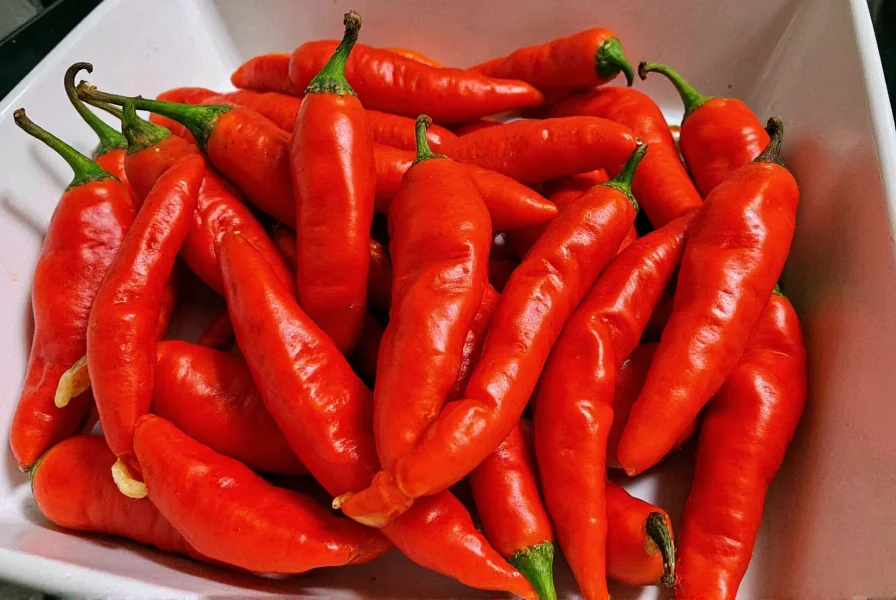The Art of Perfectly Roasted Red Peppers
Roasting red bell peppers unlocks their natural sugars, creating a complex flavor profile that elevates countless dishes. Unlike raw peppers, roasted versions develop deep umami notes with subtle smokiness while maintaining their signature sweetness. This transformation occurs through the Maillard reaction and caramelization during the heating process, making roasted red peppers a chef's secret weapon for adding depth to sauces, dips, and main courses.
Why Roast Red Peppers?
Raw red bell peppers contain approximately 150% of your daily vitamin C, but roasting enhances their nutritional bioavailability. The heat breaks down cell walls, making antioxidants like carotenoids more accessible. Roasted peppers develop complex flavor compounds that raw peppers lack, with sweetness intensifying by nearly 40% according to culinary research. Professional chefs prefer roasted red peppers for their versatility - they blend seamlessly into sauces, add depth to salads, and provide a flavor foundation for Mediterranean and Spanish cuisines.
Four Effective Roasting Methods Compared
| Method | Temperature | Time | Best For | Key Advantage |
|---|---|---|---|---|
| Oven Roasting | 425°F (220°C) | 20-25 minutes | Multiple peppers | Even cooking, minimal attention |
| Gas Stovetop | High flame | 8-12 minutes | Quick preparation | Authentic char, traditional method |
| Grill Roasting | Medium heat | 10-15 minutes | Summer cooking | Smoky flavor infusion |
| Air Fryer | 400°F (200°C) | 12-15 minutes | Small batches | Fast, energy-efficient |
Step-by-Step Oven Roasting Guide
Oven roasting delivers consistent results with minimal effort. Start by washing and drying 2-3 red bell peppers, then place them on a parchment-lined baking sheet. For even charring, position peppers vertically with stems up. Roast at 425°F (220°C) for 20-25 minutes, turning every 7 minutes until all sides blister and blacken. The key to perfect oven roasted red peppers is watching for the skins to bubble and char without burning the flesh underneath.

Mastering the Steam-and-Peel Technique
After roasting, immediately transfer peppers to a covered glass bowl - the trapped steam loosens skins within 10 minutes. Never rinse under water, as this washes away flavorful oils. Instead, use your fingers to gently rub away charred skin while preserving the tender flesh beneath. For stubborn spots, a soft vegetable brush works better than sharp tools that might damage the pepper. Properly peeled roasted red peppers should retain their structural integrity while showing beautiful caramelized spots.
Optimal Storage Solutions for Roasted Red Peppers
Preserve your roasted red peppers using these professional methods:
- Refrigeration: Store in airtight container with olive oil for up to 10 days
- Freezing: Lay flat on parchment paper before transferring to freezer bags (6 months)
- Oil preservation: Submerge in extra virgin olive oil with garlic and herbs for gourmet storage
- Vacuum sealing: Extends freezer life to 9 months while maintaining texture
When storing roasted red peppers in oil, always keep them fully submerged to prevent spoilage. Add a splash of vinegar (1 tablespoon per cup of oil) to increase acidity and extend freshness. Glass containers work better than plastic for maintaining flavor integrity during storage.
Culinary Applications That Shine
Roasted red peppers elevate dishes beyond simple garnishes. Incorporate them into:
- Sauces and dips: Blend with garlic, almonds, and smoked paprika for romesco
- Pasta dishes: Toss with olive oil, fresh basil, and parmesan
- Sandwich spreads: Mix with cream cheese and herbs
- Grain bowls: Add smoky sweetness to quinoa or farro
- Protein accompaniments: Serve alongside grilled chicken or fish

Nutritional Comparison: Raw vs Roasted
While raw red peppers contain more vitamin C, roasting increases the bioavailability of carotenoids and lycopene. The heating process breaks down cell walls, making these antioxidants up to 30% more absorbable. Roasted red peppers maintain nearly all their vitamin A content while developing additional flavor compounds that stimulate digestion. For maximum nutritional benefit, consume roasted peppers with healthy fats like olive oil to enhance absorption of fat-soluble vitamins.
Troubleshooting Common Roasting Issues
Problem: Skin won't peel easily
Solution: Ensure proper steaming time (10 minutes minimum) and use room-temperature peppers
Problem: Bitter, burnt flavor
Solution: Reduce heat and watch carefully during final roasting stages
Problem: Soggy texture after storage
Solution: Pat peppers completely dry before storing and use sufficient oil coverage
Problem: Lack of smoky flavor
Solution: Increase charring slightly during roasting while avoiding actual burning
Seasonal Considerations for Best Results
Peak season for red bell peppers runs from July through October, when they're naturally sweeter and contain more moisture. Off-season peppers often require longer roasting times due to lower water content. When selecting peppers for roasting, choose firm specimens with deep color and smooth skin - these indicate optimal ripeness. Avoid peppers with wrinkles or soft spots, as they'll break down too quickly during roasting.
How long do homemade roasted red peppers last in the refrigerator?
Properly stored in olive oil in an airtight container, roasted red peppers maintain freshness for 7-10 days refrigerated. Always ensure peppers remain fully submerged in oil and check for any off smells before use.
Can I roast red peppers without blackening the skin?
While some recipes call for gentle roasting, the traditional method requires charring the skin to loosen it for easy removal. Without sufficient charring, peeling becomes difficult and you miss out on the characteristic smoky flavor developed during proper roasting.
What's the best way to freeze roasted red peppers?
For optimal freezer storage, lay roasted, peeled peppers flat on parchment paper before transferring to freezer bags. Remove as much air as possible from the bags. This flash-freezing method prevents sticking and maintains texture. Frozen roasted peppers keep well for 6 months.
Why do my roasted red peppers taste bitter?
Bitterness typically results from over-charring or actual burning during roasting. The skin should blacken and blister but not turn to ash. If bitterness occurs, try reducing heat slightly and monitoring peppers more closely during the final roasting stages.
Can I use roasted red peppers in place of fresh in recipes?
Yes, but adjust expectations - roasted peppers offer deeper, smokier flavors with softer texture. They work exceptionally well in cooked dishes like sauces, soups, and casseroles, but won't provide the same crisp texture as fresh peppers in salads or raw applications.











 浙公网安备
33010002000092号
浙公网安备
33010002000092号 浙B2-20120091-4
浙B2-20120091-4